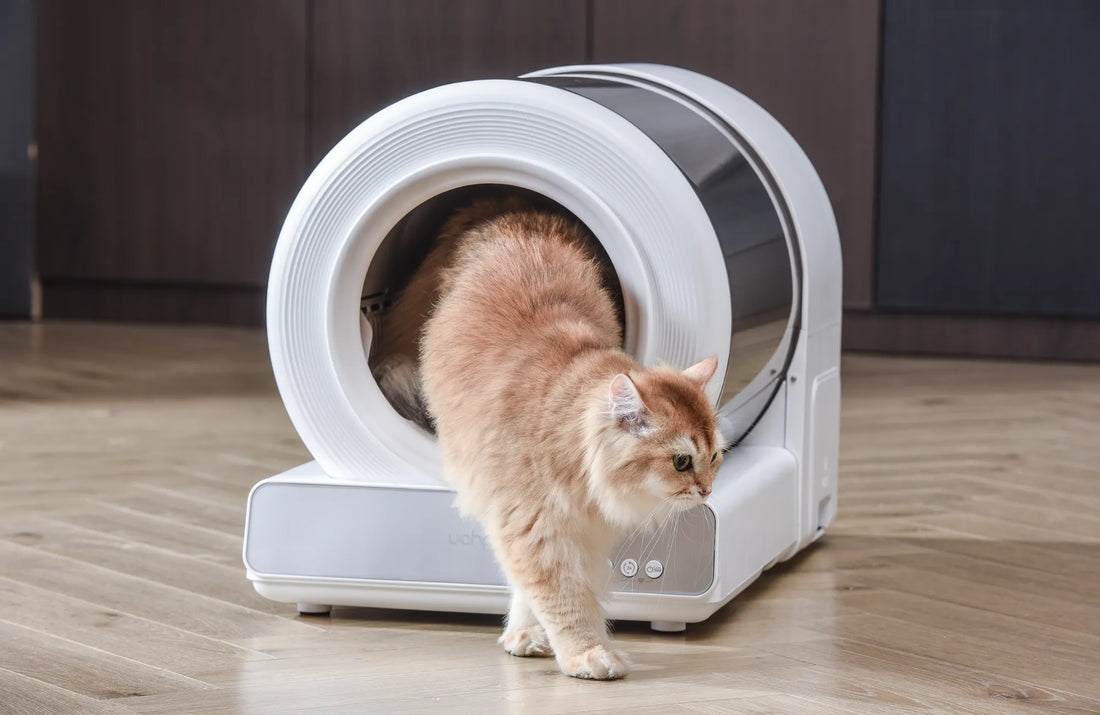If you're a cat owner, you know how frustrating it can be when your feline friend suddenly stops using the litter box. This behavior can be perplexing and stressful, but understanding the underlying causes is the first step toward resolving it. Cats are creatures of habit, and any deviation from their routine can signal an issue that needs attention. In this article, we'll explore the various reasons why a cat might stop using the litter box and provide practical solutions to help you restore harmony in your home.
Medical Issues
One of the most common reasons a cat stops using the litter box is due to medical problems. Urinary tract infections, kidney disease, diabetes, and other health issues can make it painful or difficult for your cat to urinate or defecate. If your cat associates the litter box with discomfort, they may avoid it altogether. It's crucial to consult a veterinarian if you notice any changes in your cat's litter box habits, as early diagnosis and treatment can prevent more serious complications.
Stress and Anxiety
Cats are sensitive animals, and changes in their environment can lead to stress and anxiety, which may cause them to stop using the litter box. Moving to a new home, introducing a new pet or family member, or even rearranging furniture can disrupt your cat's sense of security. Providing a calm and stable environment, along with plenty of hiding spots and vertical spaces, can help alleviate your cat's stress and encourage them to return to their litter box.
Litter Box Preferences
Cats can be quite particular about their litter box preferences. The type of litter, the size and style of the box, and its location can all influence whether your cat uses it. Some cats prefer unscented litter, while others may avoid covered boxes. Experimenting with different types of litter and boxes can help you find the combination that your cat prefers. Additionally, placing the litter box in a quiet, accessible location can make it more appealing to your feline friend.
Cleanliness
Cats are naturally clean animals, and a dirty litter box can be a major deterrent. If the box isn't cleaned regularly, your cat may choose to eliminate elsewhere. Scooping the litter box daily and performing a thorough cleaning at least once a week can help maintain a hygienic environment that your cat will want to use. Providing multiple litter boxes in multi-cat households can also prevent overcrowding and ensure that each cat has a clean space to do their business.
Territorial Behavior
In multi-cat households, territorial disputes can lead to litter box avoidance. If one cat is bullying another or guarding the litter box, the subordinate cat may seek out alternative locations to eliminate. Providing separate litter boxes for each cat, along with ample resources like food, water, and resting areas, can help reduce tension and encourage proper litter box use.
Aging and Mobility Issues
As cats age, they may develop mobility issues that make it difficult to access the litter box. Arthritis, joint pain, or other age-related conditions can prevent your cat from climbing into a high-sided box or navigating stairs to reach the litter box. Providing a low-sided box or placing the litter box in an easily accessible location can help accommodate your senior cat's needs.
Behavioral Problems
Sometimes, a cat's decision to stop using the litter box is purely behavioral. This can be due to a lack of proper litter box training, a negative experience associated with the box, or even boredom. Reinforcing positive behavior with rewards and providing mental and physical stimulation through play and enrichment activities can help address behavioral issues and encourage your cat to use the litter box again.
Environmental Changes
Changes in your cat's environment, such as new furniture, a different type of flooring, or even a change in your daily routine, can disrupt their litter box habits. Cats thrive on consistency, and any alteration to their surroundings can cause confusion or stress. Maintaining a stable environment and gradually introducing changes can help your cat adjust and continue using the litter box as usual.
Solutions and Prevention
Addressing litter box avoidance requires patience and a proactive approach. Start by ruling out medical issues with a visit to the veterinarian. Once health problems are ruled out, consider the various environmental and behavioral factors that could be influencing your cat's behavior. Experiment with different types of litter and boxes, ensure the box is clean and accessible, and provide a stress-free environment. Positive reinforcement and consistency are key to encouraging your cat to return to their litter box.
Understanding why your cat has stopped using the litter box is essential for finding a solution. By identifying the root cause and implementing the appropriate changes, you can help your feline friend feel comfortable and secure once again. Remember, patience and persistence are crucial, and with the right approach, you can restore your cat's litter box habits and maintain a happy, healthy home.

![[🎃Halloween Sale]UAHPET Stainless Steel Self-Cleaning Cat Litter Box](http://www.uahpet.com/cdn/shop/files/1-cat-litter-box.jpg?v=1761890851&width=1600)












